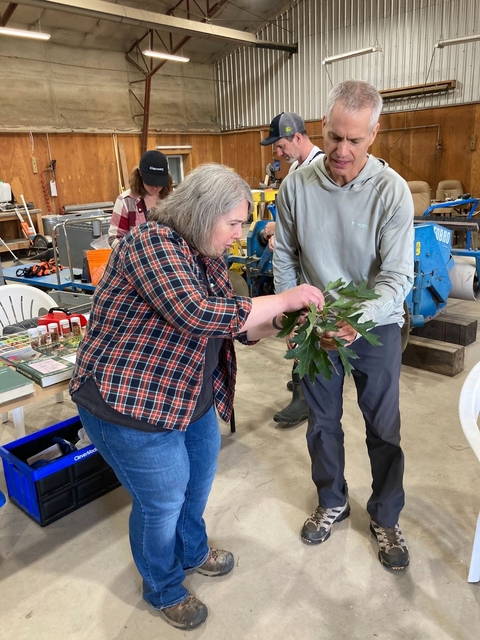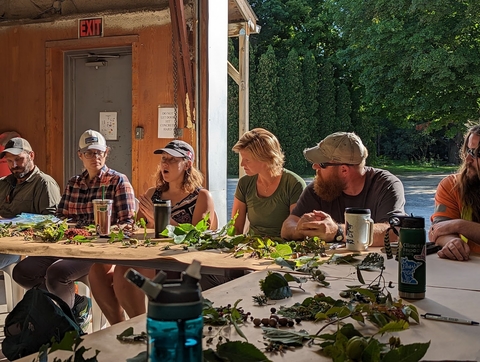To reduce the impacts of climate change, we need to take action to lower the amount of carbon dioxide that we emit and remove as much CO2 from the atmosphere as we can. That’s where trees come in! Trees are a natural climate solution because as they grow they draw CO2 in and store it as wood.
How can we use trees to their full potential? Many scientists believe that reforestation, which is replacing forests that have been lost, is a large part of the answer. The Nature Conservancy is one group working to reforest large areas of the United States. In Minnesota, their goal is to reforest one million acres by 2040 — an aggressive goal, but achievable with strong partnerships throughout the state.
One of the biggest gaps in reforestation efforts in Minnesota is a shortage of native tree seed, which is needed to increase tree nursery capacity. Partnerships have developed throughout the state to increase tree seed collection. While both the Minnesota DNR and the Forest Assisted Migration project pay cash for seed and have seed drop-off centers, there is a need for new people to be trained and to begin collecting seed.
To meet that gap, Extension is working with The Nature Conservancy and Minnesota DNR to develop a tree seed collection training program. We are using the Forest Gene Conservation Association's seed collection training program in Ontario as a model for what we can create in Minnesota. Their program results in a Certified Seed Collector certificate. This summer we enrolled 55 Minnesota natural resource professionals in their online training webinars, and nine professionals recently attended their advanced field training in Ontario.
Extension's forestry leadership team is planning a field training day in Minnesota for natural resource professionals in late September. This winter we will begin to offer online and in-person training opportunities for the general public.
Stay tuned! This is an exciting opportunity to help our forests and improve the health of the environment.



